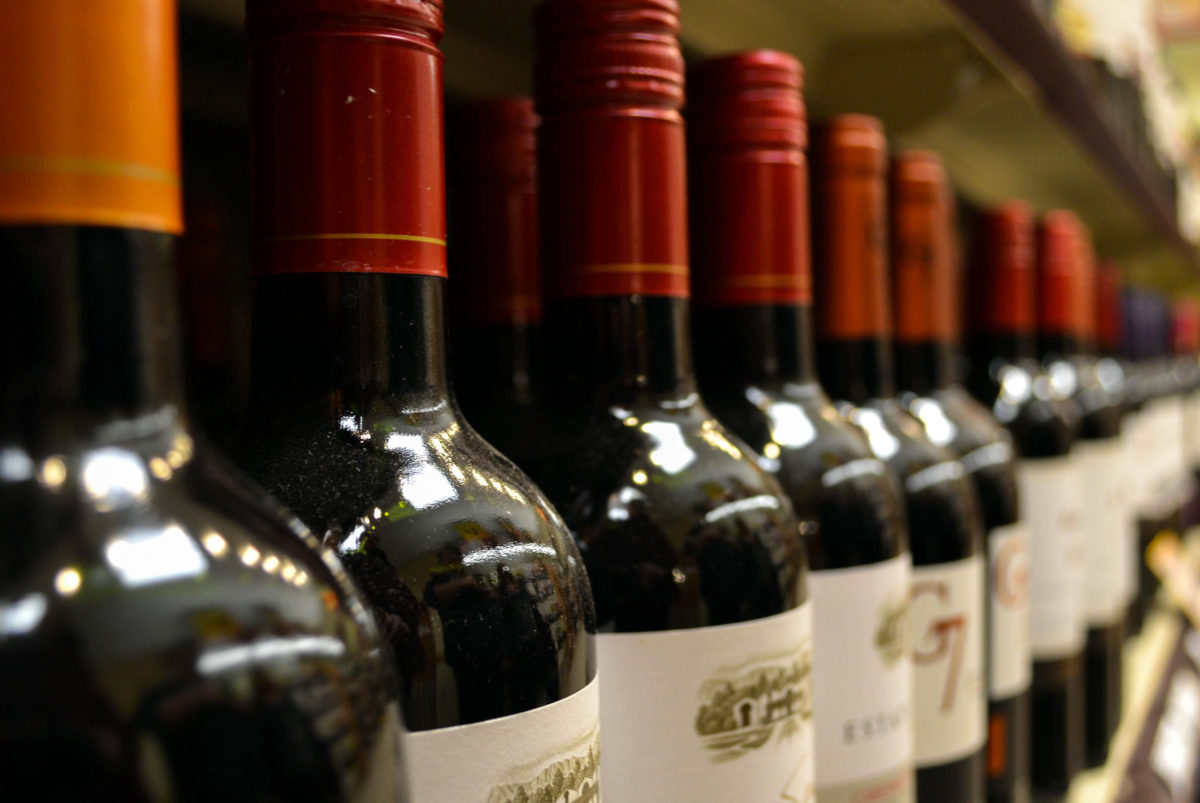


(Hadeel Ibrahim/AQ)
Many St. Thomas University students anticipate the first pub crawls after the school’s dry welcome week like children anticipate Christmas. Headlining this year’s alcohol-fueled tours was The Hangover Games, the first 2015 graduate class pub crawl of the year, which saw about 100 students turn out on Friday night and caught the attention of a few who feel campus drinking culture has gone too far.
Fourth-year student Kaley Etheridge thinks the name of the pub crawl was an issue as well as the amount of attention drinking events get on campus.
“What bothers me about The Hangover Games is that you’re saying, ‘this is a pub crawl that is based on a last-man-standing competition,’” he said. “Apparently we want to be the grad class known for getting drunk…”
St. Thomas grad class president Travis Aten said he would have been open to a name change had he been approached about it. He then put his own spin on the pub crawl’s advertisements.
“We don’t want to promote binge drinking, but it is a pub crawl, and you drink at those usually,” he said. “Another way you could look at it though, is that the point of the Hunger Games is to not to go hungry… and so the point of the Hangover Games is to not get a hangover.”
While Aten brought in designated sober pub-crawlers and told bars and pubs to prepare for the onslaught of intoxicated twenty-somethings, safety while on the pub crawl isn’t the only concern for Dr. Rice Fuller, senior director of health and wellness at University of New Brunswick.
“Over the past several years it’s become pretty clear to me that binge drinking is the number one public health problem on both of our campuses,” Fuller said.
He said students are particularly susceptible to binge drinking because of low self-esteem and high expectations, and celebrating “getting wasted” often leads to binge drinking and confusing reality with their expectations.
“Peoples’ expectations of what drinking is going to do to the person will affect how they use it,” said Fuller. “Some people think ‘drinking will make me more attractive’ or ‘drinking will make it easier to make friends.’”
Etheridge understands parties and events that serve alcohol are more successful because most students drink, but just because it is an easy sell doesn’t mean it should be taken advantage of.
“I don’t think that we should necessarily encourage more drinking, just because more of us do drink. People should be branching out in university,” he said.
Aten said the pub crawls are pivotal to funding the graduating class’s other activities. This year he is trying to create more events outside of the bars, including trivia nights, alumni events such as the networking event “speed-mentoring,” and a potential ski trip to Crabbe Mountain.
“We get a lot of our money from pub crawls, and pub crawls are a very easy way to make money. That’s a part of why we do them,” Aten said.
Atlantic Canadian universities have seen a number of alcohol-related deaths in recent years, including the 2010 death of STU volleyball player Andrew Bartlett, who fell down stairs drunk after a party.
The 2004 Canadian Campus Survey found Atlantic campuses rank the highest in heavy drinkers per capita, as well as in reporting alcohol-related sexual harassment and unplanned sexual encounters. Nearly half of Atlantic respondents were found to drink a harmful amount, almost 15 percentage-points higher than the national average. Fuller said the yet-to-be-released 2013 statistics show this trend continuing.
“There are several common sense strategies to try and avoid over-consumption,” Fuller said. His tips include eating before going out, avoiding shots of straight liquor and alternating non-alcoholic drinks with alcoholic ones.
“One of those would also be not participating in an event like a pub crawl, but as a lot of people are, the best thing you can do is know your limit.”
